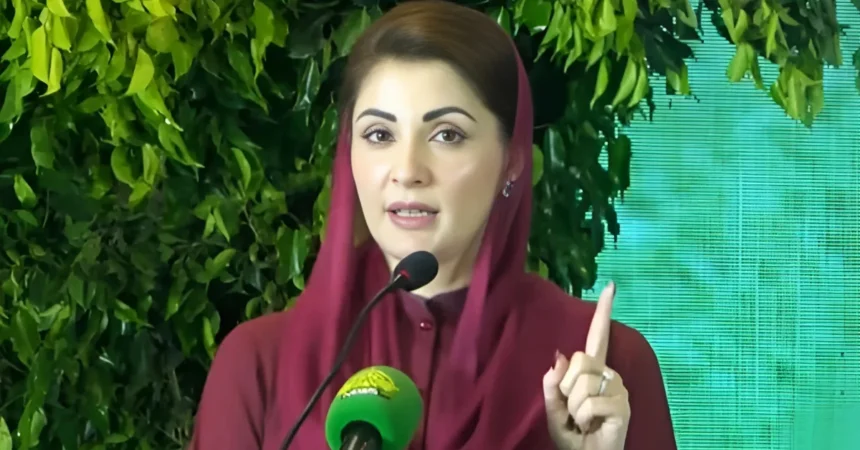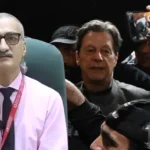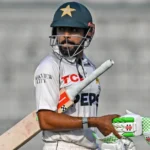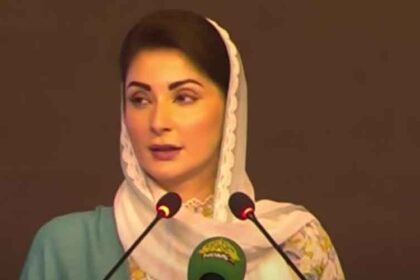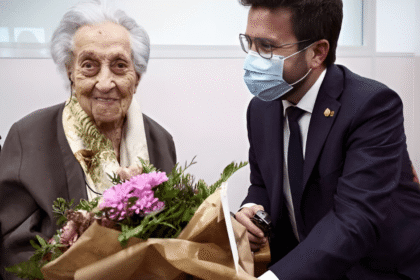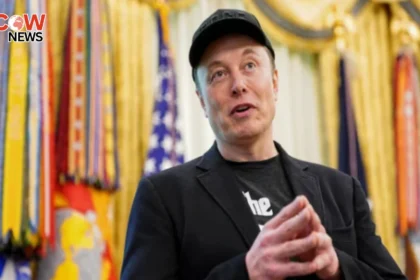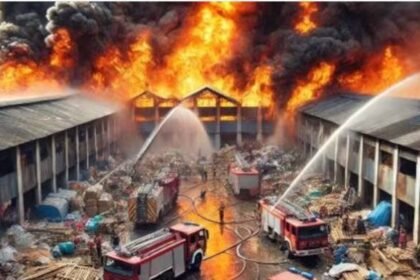Introduction
In a recent address, Chief Minister Maryam Nawaz criticized the Pakistan Tehreek-e-Insaf (PTI) for misleading the public regarding an incident at a local college. Her sharp rebuke has reignited political tensions between the ruling Pakistan Muslim League-Nawaz (PML-N) and the opposition PTI. This incident has garnered significant media attention, with both parties blaming each other for spreading misinformation and manipulating public opinion.
In this article, we explore the background of the college incident, examine Maryam Nawaz’s claims, and analyze the broader political and social implications of this growing rift between two of Pakistan’s largest political parties.
Background of the College Incident
The controversy began when reports surfaced of a violent altercation at a college in Punjab, where students clashed over alleged political affiliations. According to initial reports, the scuffle involved students aligned with different political student groups. PTI leaders were quick to point fingers at the PML-N-led provincial government, accusing them of instigating violence and creating an unsafe environment in educational institutions.
On social media, PTI supporters circulated videos and images purportedly showing government negligence and authoritarian practices. These claims quickly spread, fueling a heated debate about the role of political influence in educational spaces. However, as more information emerged, it became clear that the situation was more complex than initially portrayed.
Maryam Nawaz’s Response
Maryam Nawaz, currently serving as the Chief Minister of Punjab, wasted no time in responding to PTI’s accusations. In a public address, she accused PTI leaders of deliberately spreading misinformation to discredit the provincial government. She described the incident as an internal dispute among students and denied any involvement by her administration.
Maryam emphasized that PTI’s attempts to politicize the incident were irresponsible and potentially dangerous. She stressed the importance of maintaining a non-partisan approach to educational matters and expressed concern that PTI’s rhetoric could incite further unrest in colleges and universities across the province.
“The PTI leadership is misleading the public with false information. This kind of behavior undermines the integrity of our institutions and distracts from the real issues we need to address in education,” she stated during a press briefing.
The Role of Social Media in Spreading Misinformation
The rapid spread of misinformation about the college incident highlights the significant role that social media platforms play in shaping public perceptions. PTI’s use of social media to disseminate their narrative of the event illustrates how political parties leverage online spaces to control public discourse.
In this particular case, videos and posts shared on Twitter, Facebook, and WhatsApp groups framed the incident as a failure of the provincial government. The content was shared widely, often without proper context or verification. This tactic, often referred to as “disinformation,” allows political actors to manipulate facts and sway public opinion in their favor.
Maryam Nawaz condemned the use of social media for what she called “political theatrics.” She urged the public to verify information before accepting it as truth and called for accountability for those spreading false narratives. “It is our duty as leaders to uphold the truth and not exploit vulnerable situations for political gain,” she asserted.
Broader Political Implications
The altercation between PTI and PML-N over the college incident is not an isolated event but part of a broader political struggle between the two parties. Since PTI’s ousting from power in April 2022, the party has consistently accused the PML-N of incompetence and mismanagement, especially in key areas such as education, healthcare, and economic policy.
Maryam Nawaz’s response to the incident suggests that the PML-N is determined to maintain its control over Punjab, which is seen as a key battleground in Pakistani politics. By addressing PTI’s accusations head-on, she is positioning herself as a strong leader who will not tolerate attempts to undermine her government.
On the other hand, PTI’s focus on attacking the PML-N’s education policies reflects its strategy to regain public support by highlighting perceived government failures. The college incident is just one example of how PTI is using contentious issues to question the PML-N’s ability to govern effectively.
Educational Institutions as Political Battlegrounds
This incident underscores how educational institutions in Pakistan have become politicized spaces, where student groups often serve as proxies for larger political parties. In many colleges and universities, student unions are aligned with political factions, which can lead to conflicts that mirror the broader national political landscape.
Maryam Nawaz has repeatedly spoken out against this trend, advocating for the depoliticization of educational institutions. She believes that students should focus on their academic pursuits rather than being drawn into the political fray. “Our schools and colleges should be safe havens for learning, not breeding grounds for political agendas,” she remarked.
However, PTI has argued that student activism is an important part of democratic engagement and should not be stifled. They have accused the PML-N government of attempting to suppress dissent among student groups that are critical of their policies.
The Importance of Fact-Checking and Responsible Journalism
In light of the misinformation surrounding the college incident, Maryam Nawaz called on journalists and media outlets to prioritize fact-checking and responsible reporting. She emphasized that sensationalized stories only contribute to the political polarization in the country, making it harder to address real issues.
“We cannot allow false narratives to shape public opinion. The media has a duty to present the facts as they are, without distortion or bias,” Maryam stated. She also urged the public to be critical consumers of news and to question the credibility of sources before forming opinions.
This incident serves as a reminder of the importance of media literacy in the digital age. With the proliferation of social media and online news platforms, it has become easier for misinformation to spread rapidly, often without being challenged.
Legal and Political Repercussions
The college incident and the ensuing war of words between PTI and PML-N could have legal and political repercussions for both parties. Maryam Nawaz hinted that her government may pursue legal action against those responsible for spreading false information about the incident. She argued that holding individuals accountable for their actions is essential to maintaining public trust.
At the same time, PTI’s continued attacks on the PML-N government could influence public opinion ahead of the next general elections. By painting the PML-N as corrupt and ineffective, PTI hopes to gain an advantage at the polls. However, if they are found to be responsible for disseminating false information, it could backfire and damage their credibility.
Maryam Nawaz’s Political Strategy
Maryam Nawaz’s handling of the college incident offers insights into her broader political strategy as she seeks to solidify her leadership in the PML-N and position herself as a future prime ministerial candidate. By confronting PTI’s accusations directly and emphasizing the importance of truth and accountability, she is presenting herself as a no-nonsense leader who is not afraid to tackle difficult issues.
Her strong stance on the depoliticization of educational institutions also aligns with her broader vision of governance, which prioritizes transparency, development, and institutional reform. If successful, this strategy could help her build a loyal support base, particularly among younger voters who are frustrated with the current state of politics.
The college incident and the political drama that followed have highlighted the deep divisions between PTI and PML-N, with both parties vying for control of the narrative. Maryam Nawaz’s sharp critique of PTI’s role in spreading misinformation underscores her commitment to defending her government’s policies and protecting the integrity of Punjab’s institutions.
As Pakistan’s political landscape continues to evolve, incidents like this one will likely become more common, as both PTI and PML-N seek to gain the upper hand. The question remains: will these political tactics ultimately benefit the public, or will they further divide the nation?
#MaryamNawaz #PTIvsPMLN #PunjabPolitics #StudentClashes #Misinformation #SocialMediaPolitics #PakistanEducation

